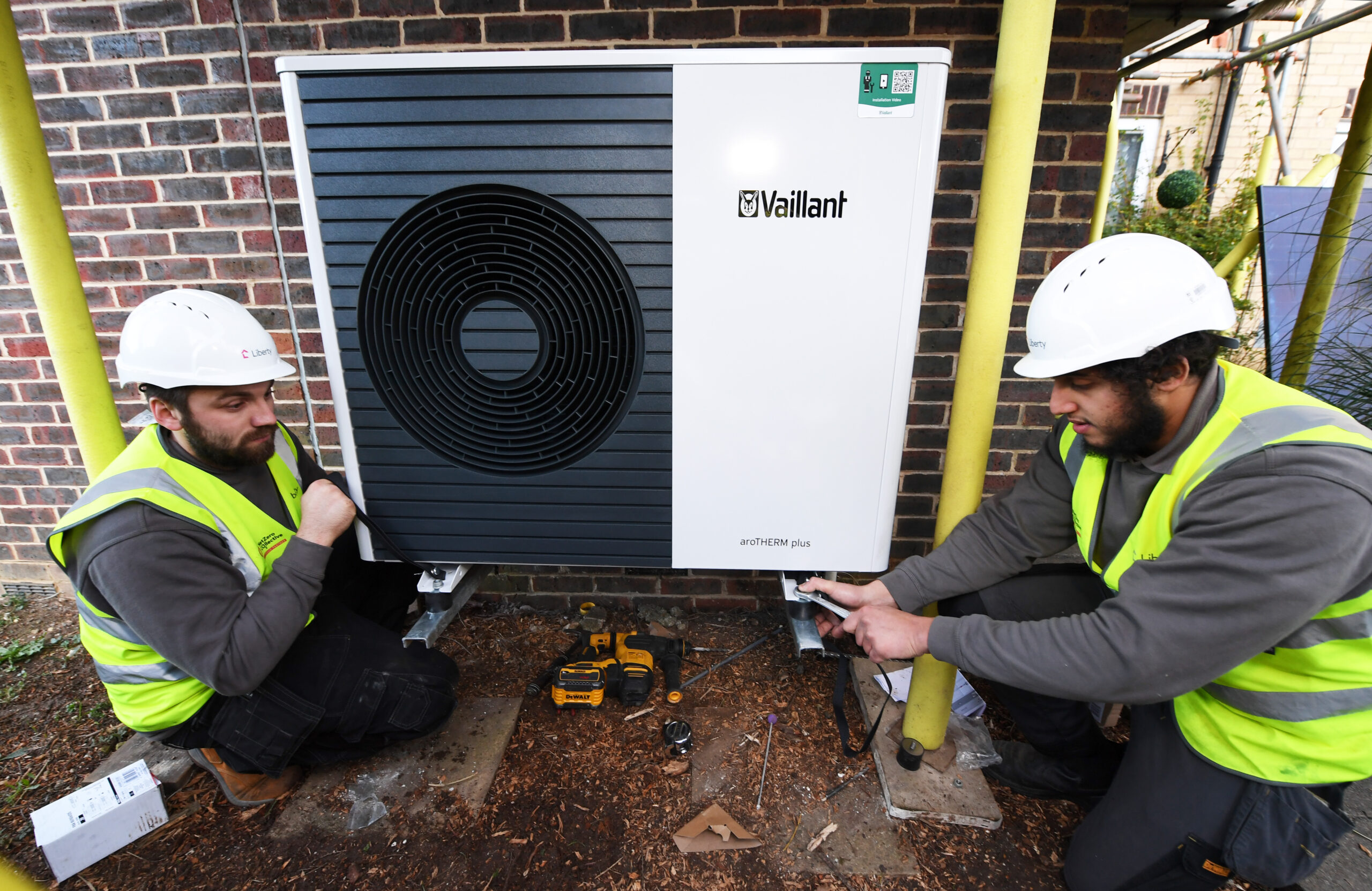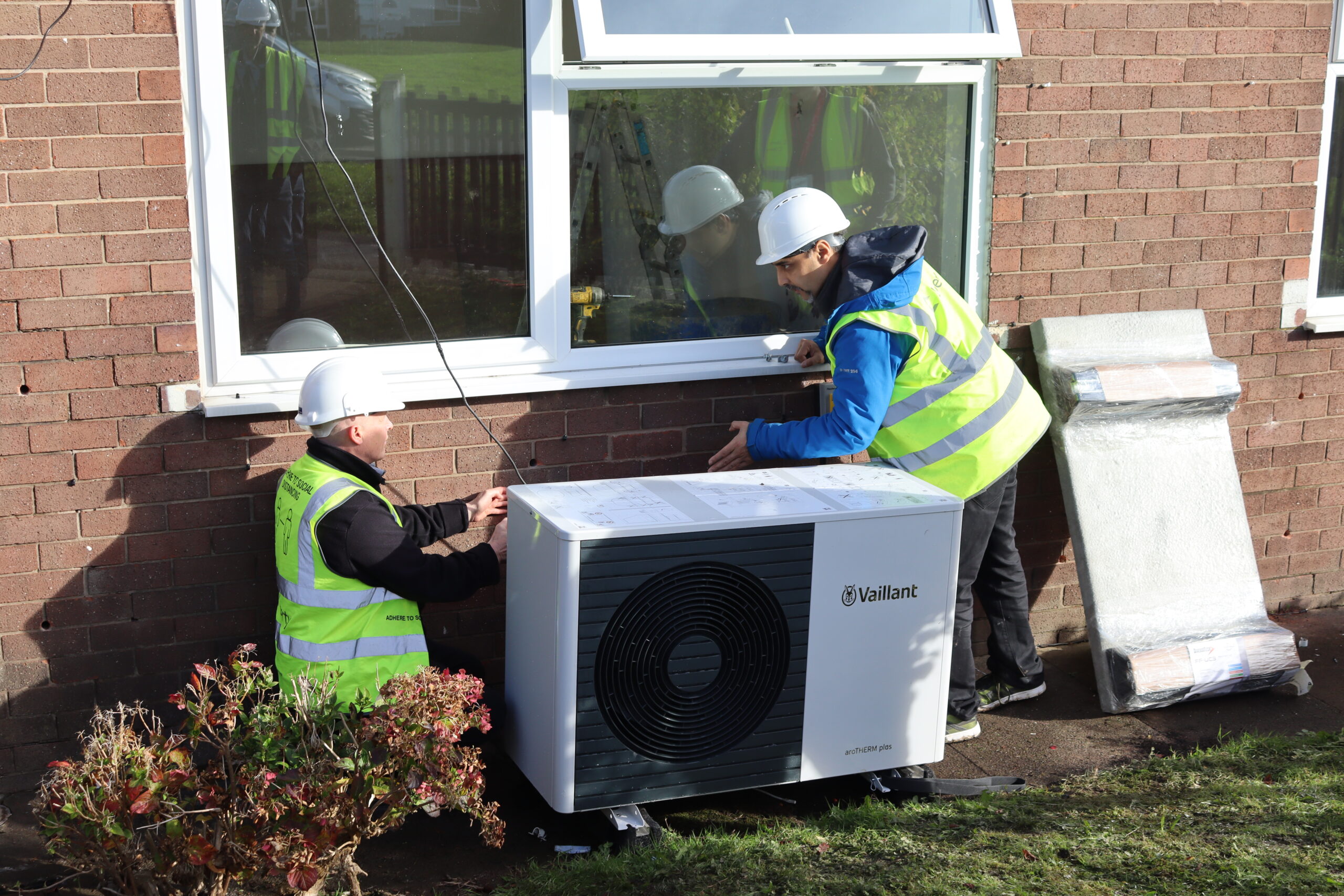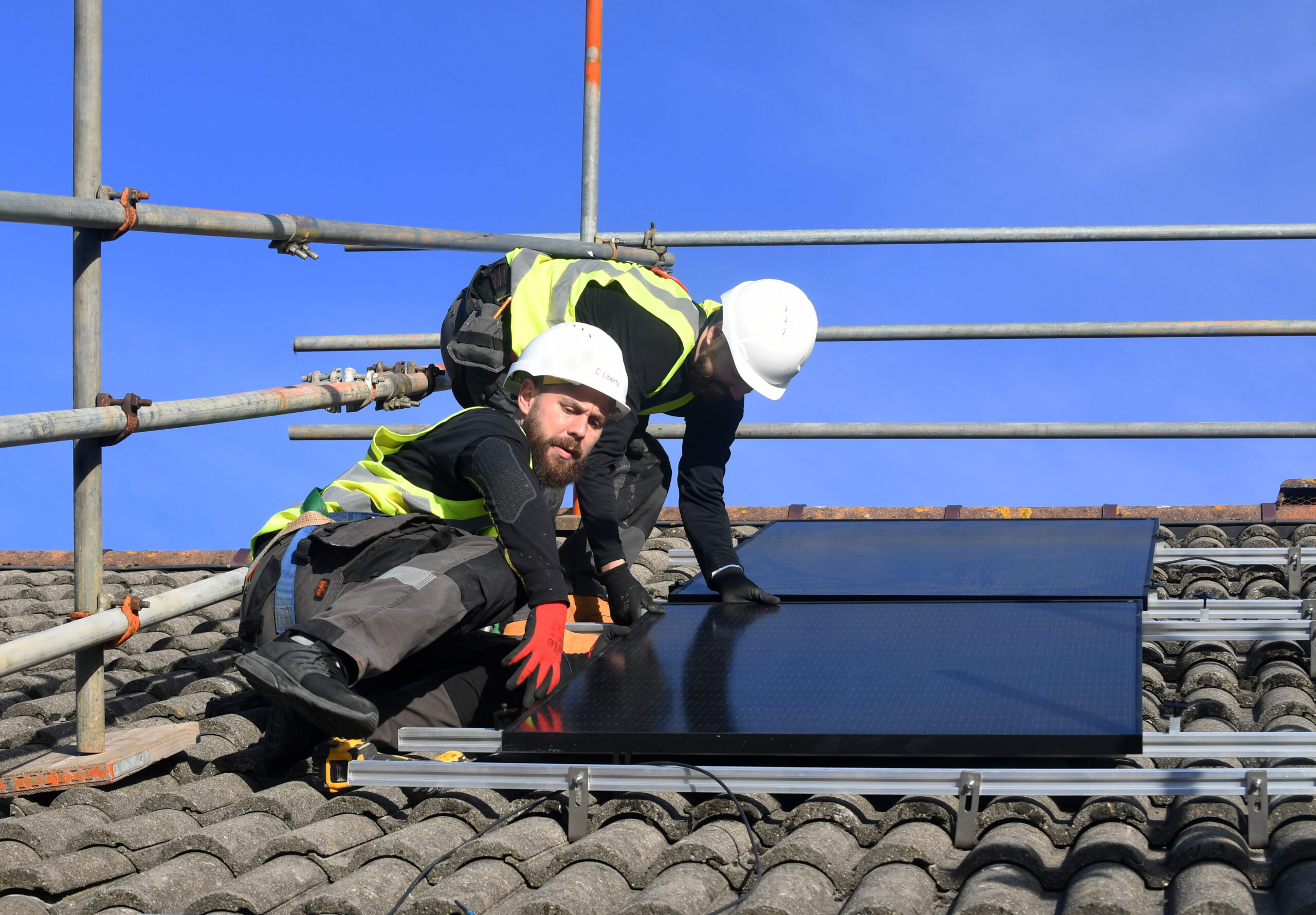Fuel poverty and decarbonisation are high on everyone’s agenda, and by developing smarter retrofit programmes, we can help you to tackle both at the same time.
A fabric-first approach aligned to PAS2035
The cheapest energy is the energy you don’t use, so by improving the thermal efficiency of your homes, your tenants can save money on their energy bills. This approach is also seen as best practice and is aligned to PAS2035 requirements which social housing providers need to follow when using Government funding for retrofit.
Examples of fabric improvement measures are:
- Cavity wall insulation
- Loft insulation
- Internal/external wall insulation
- Double/triple glazing
- Floor insulation
Decarbonising heating and domestic hot water
With 40% of the carbon emissions from UK homes coming from heating and hot water systems, ditching fossil fuels for good must be a key part of all whole-house decarbonisation retrofit plans.
We’re experts in the specification, design and installation of low and zero carbon heating technologies, including air source heat pumps, and direct-electrical heating.


Generating clean electricity
Generating free electricity for use in the home is a great way for landlords to lower fuel bills for their tenants. Installation of solar panels can be complimented with the addition of technologies such as battery storage to allow free energy made during the day to be stored and used in the evening – a real boost for tenants who may be out of the home during the sunniest parts of the day.
These technologies always work brilliantly when combined with air source heat pumps. Check out the video case study below from one of Crawley Borough Council’s first retrofit schemes where the tenant saved 80% on his heating bills through the installation of an air source heat pump, solar panels and battery storage.


Support on funding
We work closely with our partner organisation and consultants to the social housing industry NetZero Collective to support clients to maximise their access to funding for retrofit works, such as the Social Housing Decarbonisation Fund (SHDF) and Local Authority Delivery Scheme (LADS).
Data that proves you’re hitting your targets
For all retrofit schemes delivered through NetZero Collective, Liberty install monitoring equipment in the homes which allows landlords to keep track of how the home is performing after the retrofit works are completed.
The monitoring kit is discreet and non-invasive, collecting only temperature, humidity, CO² and energy use data from the home. So, there is no concern over the privacy of your tenants. The data collected is used to show how retrofitted homes are performing, allowing early identification of issues, and highlighting possible educational requirements for tenants who may be incorrectly using the technology installed in their homes. It is also used to determine the amount of carbon saved by installing the measures.
Having all this data to hand allows you to prove that the retrofit interventions you’ve delivered are working in the real world, helping your tenants to lower their fuel bills and reduce their carbon footprints.


PAS 2035 is the British Standards guide to retrofitting properties. It details how to carry out energy retrofits of existing domestic buildings along with guidance for implementing identified energy efficiency measures (EEM).
Once a property has had EEM installed, this could increase the home’s EPC rating from a D to a B or A.
here are lots of ways we can help you to eliminate fossil fuels from your tenants’ home heating and hot water systems, and solution can be different depending on the property and the individual clients’ aspirations. One common method used include replacing gas boilers with air source heat pumps.
HSE guidance dictates that all areas accessible to the public are maintained in a safe manner – this includes properties that are landlord controlled. Get in touch with Liberty and we can offer the best advice for you.
Insulating is always a good idea, as the cheapest energy is the energy you don’t use. So, by increasing insulation levels, your tenants’ homes will stay warmer for longer, reducing the amount of energy needed to heat their homes, and lowering their fuel bills.
However, standards such as EnerPHit and Passivehaus insulation standards are not required for low-carbon heating systems such as air source heat pumps to work efficiently. Achieving an EPC level C is often fine. We would always recommend a full PAS2035 survey, and appropriate heat-loss calculations be conducted for homes prior to any retrofit works. This will mean that whatever decarbonisation retrofit and low-carbon heating system you choose, it will be designed appropriately to work in the home.
Unfortunately, the answer to this is ‘it depends’. Most roofs are strong enough to take the additional weight and wind load that solar panels add, however sometimes the structure may need to be reinforced first.
In addition, old roofs which are coming towards the end of their lives may benefit from being replaced before solar panels are installed. This is generally a more cost-effective approach that adding solar panels to an old roof, and then needing to remove and re-install them at a later date in order to do repairs to the roof covering or structure. We could also consider installing inset solar panels which would mean not replacing all the roof tiles when they are at the end of life.
Before any installation, we would work with you to ensure that a thorough survey is completed and a suitable approach is agreed.


